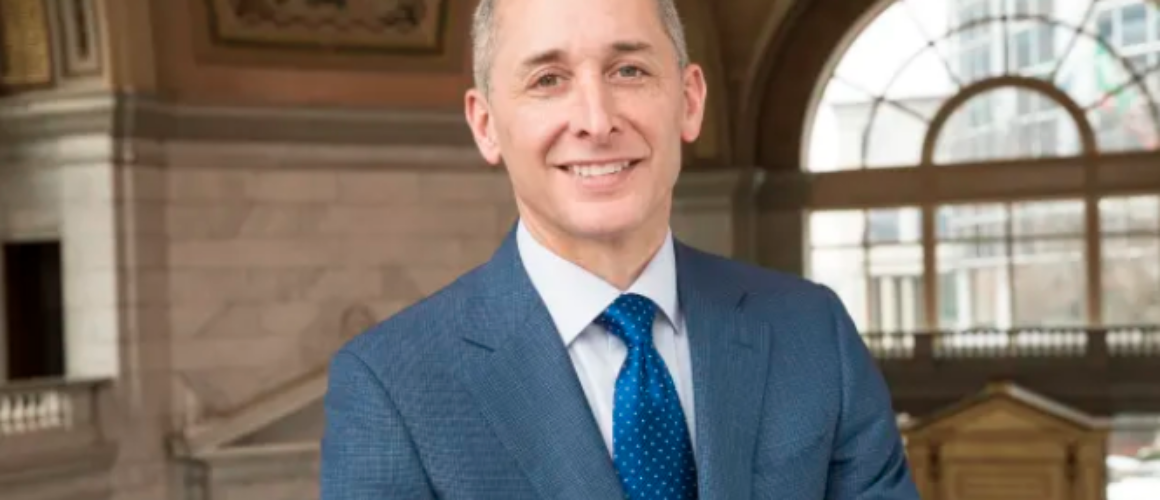We Gotta Abandon The ‘One-Drop Rule’
The man in the picture above is René Jones, the Chairman and Chief Executive Officer of the Buffalo, New York based M&T Bank. On February 27, CNBC published an article lauding Jones for being one of the four Black Fortune 500 CEO’s in America.
Yes, that man above is being celebrated as a successful Black man. And, by the one-drop rule standards, he absolutely is a Black man. But as you are reading that statement and intellectually processing what Blackness means to you, and what Jones actually looks like, a cognitive dissonance arises. And if you’re confused as hell, you’re not alone, which is why we need to evolve from having simplistic discussions about race, and abandoning the simplicity of the one-drop rule would be a good place to start.
So, for starters, lets explain what it is: it is a social and legal classification used to define a biracial person as a Black person based on them having any Black person in their ancestry. From a legal perspective, the U.S. once officially identified biracial people (with some form of Black ancestry) as ‘mulatto’ up until the early-twentieth centuries when various states abandoned that term and decided that biracial people would only be called either Black or white.
From a social perspective, Black folks, for some time, have accepted the one-drop rule as many biracial people, especially those who present with prominent Black features, have suffered at the hand of the state’s racial caste system. Being light skinned with a broad nose, thick lips and kinky hair could find a biracial person banned from the same lunch counter and restricted from the same water fountain and trapped in the same noose as a dark-skinned person.
But what makes this conversation, and this particular rule, so complicated is that so many of us see race as a definitive genealogical trait as opposed to a sociological choice – and both are kind of true.
If Idris Elba had a baby with Lupita Nyong’o, no one would ask what the baby’s race is and that child would grow up in a world where they have no say in the matter. On the other hand, if Idris Elba has a baby with Reese Witherspoon, we would have to wait and see what prominent features the baby adopted, and whether or not the parents (and then the child themself) choose to play up those features or conceal them. So science and socialization are both equally right in this conversation, and now, through integration and immigration, our society is more generationally mixed than ever, which makes this conversation even MORE complex.
While laws about the one-drop rule were conceived in the early nineteenth century during slavery, the last ship carrying enslaved Africans to America, the Clotilda, arrived in America in 1860 decades after those initial laws were put on the books. The bloodlines of many white Americans tracing back to Europe were predominantly white, and the bloodlines of the enslaved Africans were predominantly Black. But today, we’ve had so much generations of mixing, that the genealogical aspect of race, in predominantly white nations, is starting to dissipate.
Remember last year, when Oprah interviewed Harry and Meghan Markle and they revealed that the royal family was deeply concerned that Meghan’s daughter was gonna come out looking like Susie Carmichael? And then when the child was born, and everyone took turns staring at the first pictures and trying to analyze what race the child can be defined as? Instead of understanding that child would be biracial, the royal family was literally shaking that they might have to identify a member of the royal family as Black. And as much as the royal family took a deep breath after seeing what their daughter looks like, the funny thing is that she has not even made her own choice about how she will choose to present to the world.
When Quincy Jones’ two daughters, Rashida and Kidada, were growing up, they each made opposing cultural choices during their teenage years about their ethnicity. Kidada chose to amplify her Black features, hang out with Black folks and embrace blending into the Black community, while Rashida chose to present as white and blend into white social groups. And they both did this so damn well that I didn’t connect them as relatives, much less sisters, until I saw them with Quincy like 10 years ago. Back in the 90’s, I knew Kidada as Tupac’s very Black fiancee, and in the early 2000’s I knew Rashida as the white girl from Boston Public and that Chappelle Show sketch where Dave says “Kobe” before throwing his used condom in a trash can. So what does the one-drop rule mean when your ethnicity is a choice?
Now some may argue that you cannot truly choose your race, bur rather (if you’re biracial) you can choose whether or not to conceal it, which is absolutely a fair point. In fact, that is one of the major themes of the movie Passing. And my response to that would be, what is the benefit of identifying race, using the one-drop rule, as a straight scientific fact? Because, there are absolutely some definitive harms to it.
Harm #1: today, racism and prejudice is less predicated on scientific delineation, as it is on straightforward appearance. I, as a man with two Black parents, does not travel through the world in the same manner that René Jones does. We face two different realities when pulled over by the police. We face two different realities when shopping at a high-end luxury clothes store. We face two different realities when we we choose to wear hoodies on a chilly day. I bear the burden of systemic racism, in all it’s violence and oppression, while he can escape it based on his appearance.
Harm #2: Today, white privilege is also predicated less on scientific delineation, as it is on straightforward appearance. Though the one-drop rule both calls us Black, René Jones has access to white privilege which I have never had access to and which I will never have access to. If Jones was ever so inclined, he could weaponize his whiteness against me or any other Black person at the drop of a dime.
When you combine those harms together it creates a situation where a biracial person is allowed to climb the ranks of the world on the ladder of white privilege, only to use their one-drop Blackness to either achieve or retain their ascendance to the top. And all of this unfortunately unseats Black appearing folks from accessing the diversity and inclusion companies claim to care so much about, providing us all with a false sense of progressive equality. How far has our society progressed on the issue of race if a white-presenting man is chosen to be a Fortune 500 CEO? How far have we come if we laud the Miami Dolphins for hiring a Black coach that no one knew was Black until it was mentioned knowing the league was coming under fire for it’s lack of minority head coaching hires?
The truth is systemic racism is dependent far more on how the world sees you than how you choose to identify, which is why the one-drop rule is outdated as hell. While we don’t need to start using problematic terms like ‘mulatto’, it’s time we approach biracial identity in a far more nuanced way then we are today. Because calling everyone Black because they have some Black ancestry is pointless when some folks can choose if and when they want to be Black – you know, like when the cops show up.
This Is Your Conscience

